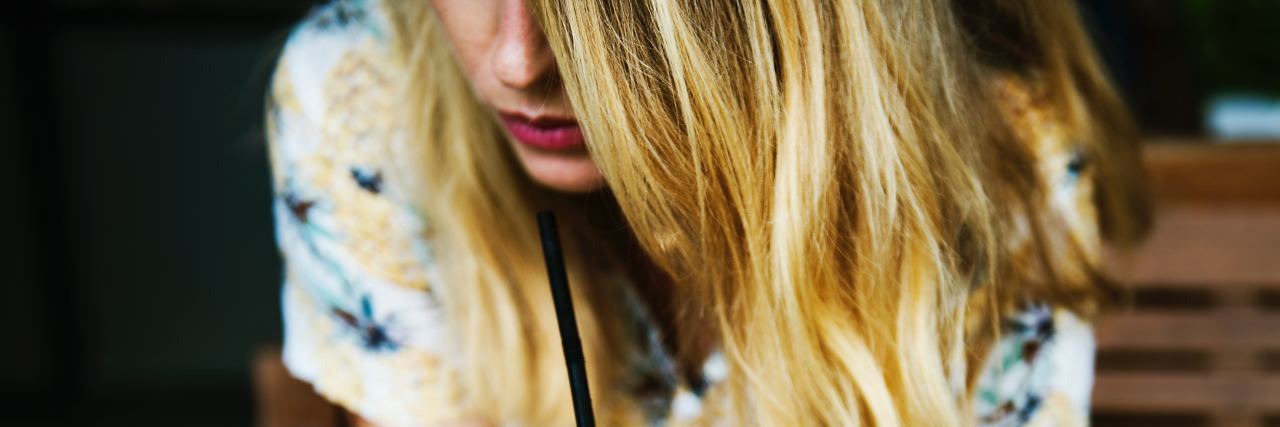The 'Secret' About Adulting We Millennials With Mental Illness Are Missing
I recently read a statistic reporting that millennials indicate higher levels of anxiety and depression than any other generation at the same age reported.
Perhaps it’s true, or maybe our generation is just more likely to acknowledge mental illness.
But, as a millennial myself and as a psychotherapist who works with this population, I can say this: there is absolutely no shortage of stress, insecurity and fear within young adulthood.
We have been branded as “special snowflakes,” brought up on participation trophies, minivans and a cool hundred or so social media platforms. We are called entitled, quirky and stubborn. We are accused of glamorizing mental illness and its surrounding symptoms, and are also shamed for being too triggered, too sensitive and too politically correct.
Society encourages us to channel our talents and follow our passions, and then society criticizes us when we venture beyond the college-work-children, cookie-cutter recipe.
We spend hours editing and filtering pixels, rewording hashtags and statuses, portraying a “just right” image of beauty and uniqueness.
If we participate in this trend, society deems us “shallow.” And, if we do not participate in this social media movement? We become outsiders.
We live in a time dictated by YOLO and FOMO, glued to our smartphones, existing in virtual reality — sometimes by choice — but mostly because everyone else our age is living in that world as well.
We have never been surer and paradoxically unsure of who we are at a given moment.
The simultaneous beauty and tragedy of my job are that I hear, explore and then hold the deepest and darkest secrets on an hourly basis. I see what society doesn’t — what lies underneath the polished exteriors and Instagram feeds, what exists beyond the surface “I’m fine” responses and #blessed captions.
I get to see the grimy truth — the authenticity, the fears and the speculation. And with that, I have concluded my own largely unscientific claim: nobody in our generation actually has a clue.
In fact, I’ll even argue this: nobody in any generation had or has a clue, either. Everyone is figuring this adulting thing out.
Whether we are 18 or 88, we are all still developing and growing. We are all prone to the same feelings of fear and anger and sadness. We all experience the raw feelings of inferiority, incompetence and incapability.
Adulthood, unlike childhood, is up to each of us to define. Sounds exciting, and it is. But, on the darker side of things, we must wrestle with the strange acceptance and insidious transition that there aren’t really any specified rules.
Nobody is really responsible or obligated to take care of us. We no longer live at the mercy of our parents and their dynamics. We have choice; we have agency, and, for the first time, we may have freedom.
I tell my clients that freedom is a double-edged sword because it is. We want it desperately, spend most of our youths chasing and experimenting with it, and once we have it, we have no idea how to handle it! Freedom is just as terrifying as it is tantalizing. Even if we detest rules and structure, it may feel so much easier to follow someone else’s path or ideology.
Of course, when channeled appropriately, freedom allows us to grow into the people we strive to be and take the action we desire to take.
Yet, when we feel stunted in our ability to manage freedom or “adulting,” life has the perception of running us instead of the other way around.
We start feeling incompetent and incapable. We feel overrun by our environments, our unconscious patterns, our established rules, no matter how toxic or childish they seem.
As millennials, we may experience freedom in intoxicating qualities. We can look up any fact via Google, watch any tutorial via YouTube, connect with anyone in the world via Facebook — and we can do this all in the comfort of a few screen taps. We can find our next dinner date on Tinder and our next job on LinkedIn. We don’t even have to start a business with a dream and investment — we can start it with a smartphone and willing Instagram followers.
Choices are exciting, but they can also be debilitating. Change is constant — the world continues to evolve, and it continues to inundate us with pressure to upgrade everything from our hair color to our phone to our entire existence.
It’s no wonder we feel anxious and depressed. It’s no wonder we feel lost and directionless, that we have difficulty with decision-making and commitment.
But, here’s the thing about our generation: we’re faking it, we’re making it and we have no idea how much everyone else around is really struggling.
We have our childish traits and we have our professional identities and we have our online personas, and if we’re lucky, we have begun to cultivate the identities of our authentic selves.
We represent a jumbled mess of sorts, and sometimes the lines look so blurred that we do not know which is which. And, you know what? It’s OK.
This embodies our learning challenge. It’s what defines us. We are unique, and we are intelligent, and we have a freedom no other generation has ever had before us.
Every day, we can challenge what a “good life” and “success” and “family” look like.
Every day, we can determine where our own values and passions lie.
And every day, ideally, we can become more accepting of the idea that nobody has a clue about adulting, anyway. So, embrace that quarter-life crisis. Embrace the “crazy” — you have permission.
Unsplash photo via Rawpixel

